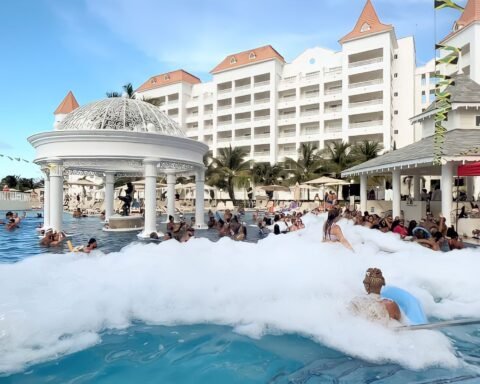In response to Russia’s threat, Boris Johnson promised on Thursday to raise UK military spending to 2.5% of GDP by the end of the decade. On the second-to-last day of the NATO summit in Madrid, the prime minister said that alliance members “recognise they need to invest more” to make sure Europe is safe.
In his case, that means reaching and going above and beyond the goal he set ten years ago. By the end of the decade, the proposed investments will raise defence spending to 2.5% of GDP. This week, NATO released numbers that show the UK will spend 2.1% of its GDP on defence in 2022. Johnson said that when the £1.3 billion in emergency aid to Ukraine is added, the number will go up to 2.3%.
The government thinks that spending on defence in 2020/21 will be £42.4bn. Johnson said, “Over the past few days, almost everyone at the table has promised to help more.” “It was worth the price of freedom.” “If we don’t reach the right conclusion in Ukraine, Putin will be able to attack other parts of the former Soviet Union with more or less no consequences,” he said.
John Healey, the shadow defence minister for Labour, said, “With war in Europe and new threats, Britain must rethink its defence planning now and not wait until the end of the decade to make important decisions.” No one thinks the PM will keep his promise to be in office until 2030, he said.
Nato’s secretary-general, Jens Stoltenberg, said that 300,000 more troops would be added to the alliance. When combined with other changes, like more military supplies and better defence plans, it was the “largest change to our collective defence and deterrence since the end of the cold war.”
Joe Biden said that the US would send an extra 5,000 troops to Romania and increase the number of troops who rotate through the Baltic states. Johnson said that what happened after the Ukraine war showed that aggressive regimes like China can’t be left alone. He said that the UK needed a “balanced approach” to dealing with the superpower. “What’s going on in Ukraine is important because it can be seen in other places. That’s why we’re standing up for an international system based on rules.”
Johnson comes back on Thursday to a disaster with the cost of living. In May, inflation reached a 40-year high of 9.1%. Andrew Bailey, who is in charge of the Bank of England, said that prices in the UK are likely to go up longer than in other countries. Johnson said he wasn’t being lazy. “We have to help people with the costs, with the £1,200 and everything else,” he said. “But you also need to look at root causes,” such as the markets for transportation, housing, and energy.



















